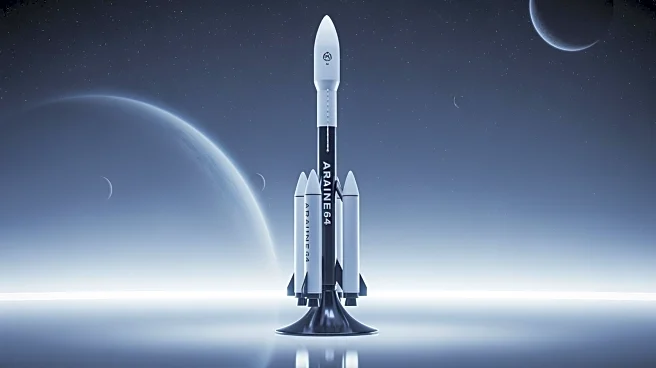What's Happening?
Arianespace has announced a delay in the first flight of its Ariane 64 rocket, now scheduled for 2026 instead of the originally planned 2025. This delay affects several payloads, including missions for Amazon's
Kuiper constellation. The postponement is part of a broader trend of launch delays in Europe, with other companies like Maiaspace, Orbex, and Skyrora also pushing back their launch schedules due to various challenges.
Why It's Important?
The delay of the Ariane 64 launch underscores the challenges faced by the European space industry in establishing sovereign launch capabilities. These setbacks can impact Europe's competitiveness in the global space market, potentially affecting contracts and collaborations with international partners. The delay also highlights the technical and regulatory hurdles that space companies must navigate, which can influence investment and innovation in the sector.
What's Next?
As Europe aims to enhance its launch capabilities, stakeholders will likely focus on addressing the technical and regulatory issues that have contributed to these delays. The industry will be closely monitoring the progress of the Ariane 64 and other European launch vehicles, as successful launches are critical for maintaining Europe's position in the space industry. Companies involved will need to strategize to meet revised timelines and ensure the successful deployment of their payloads.
Beyond the Headlines
The widespread delays in European rocket launches may prompt a reevaluation of regulatory frameworks and investment strategies to better support the space industry. This could lead to increased collaboration between governments and private companies to overcome existing barriers and foster innovation.









